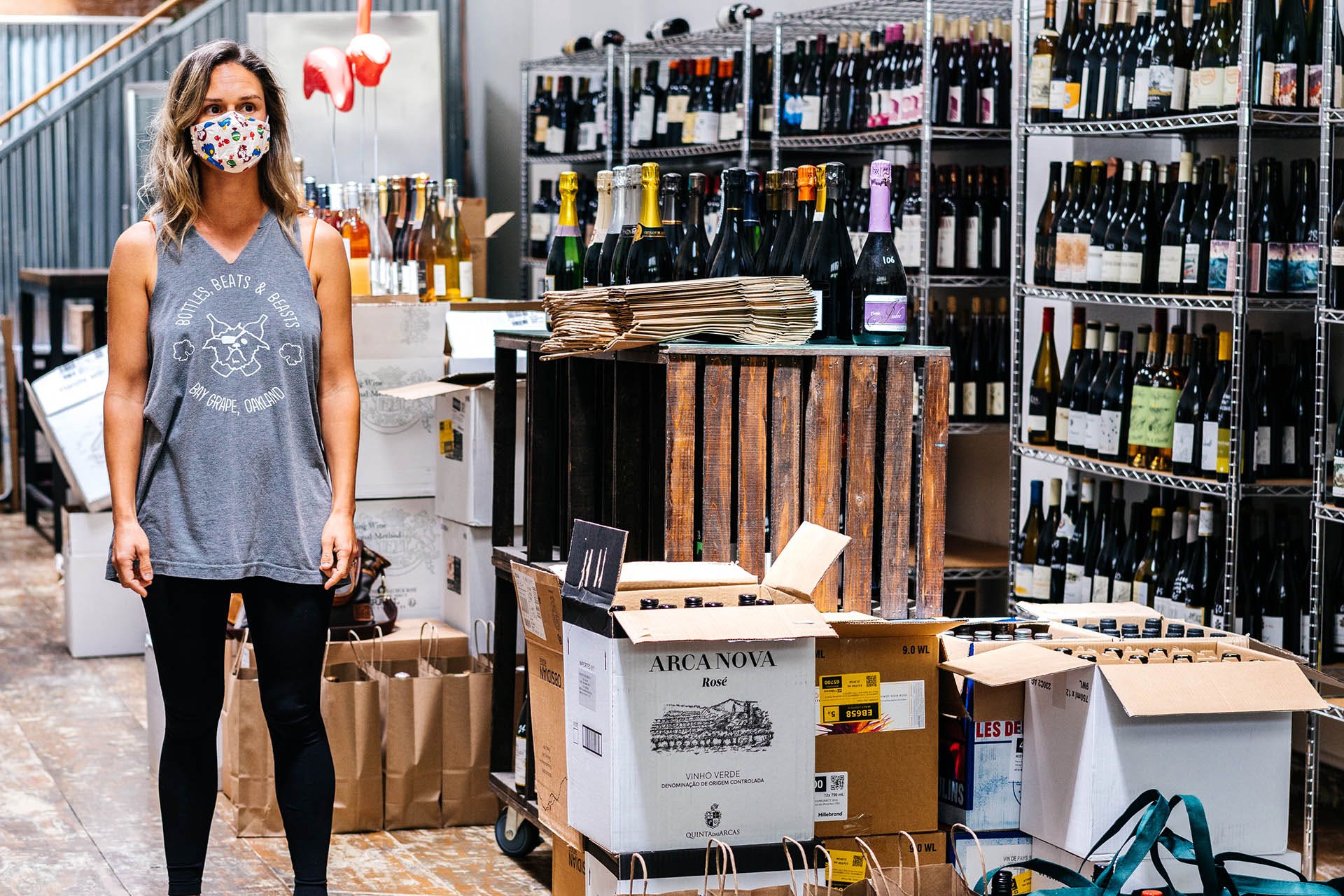If you’re an inquisitive wine drinker, you might want to know what village the wine came from, what soil types the vine grew on and how long the wine was aged. But few think about how the bottle got to the wine shop from the producer’s winery in a faraway land.
That’s where wine importers come in.
What is a Wine Importer?
The role of a wine importer can be thankless and rather invisible to most consumers. Wine often must be transported from its place of origin to another location, say, from Champagne to the U.S. Simply put, importers procure goods from another country with intent to sell in their own country. They often work together with government organizations and distributors to make these goods available in their own country.
As a result, importers play an integral part in deciding what you like and what you drink.
Wine Importers to Know
“The name of the importer, in a lot of cases, is a reflection of that person’s palate,” says Kermit Lynch, founder of Kermit Lynch Wine Merchant and author of Adventures on the Wine Route: A Wine Buyer’s Tour of France (Farrar, Straus and Giroux, 1990), a book that documented his food- and wine-soaked journeys throughout Old World vineyards now considered hallowed grounds by many U.S. wine lovers.
“My book inspired people to become importers, and I don’t blame them,” says Lynch. “What an incredible job! I can’t think of anything more fun—eating and drinking well every day. Reading that book inspired lots of Americans to become competitors with me.”

Lynch opened a wine shop to only sell his customers wines that he had “tasted or approved.” His focus was on the Old World, mainly small, family-owned, estate-bottled wines from France and Italy. His commitment to smaller estates went against the négociants, who held all the power at the time, and “totally changed the complexion of the wine world in France.”
Lynch believes it’s useful for consumers to differentiate among importers’ portfolios and palates.
“You can agree with the taste of one importer or with another,” he says. “You’ll run into a few good bottles from one importer and then a few from another importer and start looking for the names of the importer, and chances are you’ll like what you find.”
Garth Hodgdon, formerly the U.S. brand ambassador for Krug and founder of Champagne import company, Cage Imports, agrees.
“Each importer had their own unique take on a region, much like a food critic or wine reviewer has a specific style they like and review better than others,” he says. “You have to learn what those styles are and align yourself with those that have similar tastes to yours.”
Hodgdon believes that “getting to know the importers and the types of wines they represented were almost as important as getting to know the individual producers themselves.”

Lynch is not the only importer whose focus on the Old World brought attention to little-known producers. Skurnik Wines & Spirits, Wilson Daniels and Rosenthal Wine Merchant all bootstrapped their way to bringing some of the most storied names in wine to U.S. consumers.
“The single most important element in choosing a good wine is to know who the best, most reputable importers are,” says Michael Skurnik, CEO of Skurnik Wines & Spirits.
“We are passionate about quality and value…[and] see ourselves as the protector of the consumer, partnering to save them from consuming bad or mediocre wine,” he says. “Perhaps even more importantly, we also see ourselves as the caretaker of the winegrower, and his or her vineyards, to help perpetuate their way of life.”
Many importers focus not just on producers’ bottom lines, but also on the stewardship of the business for generations, and caring for an agricultural product and its environment.
“Part of our job is to ensure that growers and their families have a sustainable market in the U.S. for their wares, making fine wines available on the market for generations to come,” says Skurnik.

Wilson Daniels launched in 1978 and was established by Win Wilson and Jack Daniels as a wine brokerage. They wanted to “provide a platform for and knowledge for producers who didn’t necessarily have the experience or know-how to sell their wines in the U.S.,” says Rocco Lombardo, president of Wilson Daniels. They eventually moved to a more sales-and-marketing model for Wilson Daniels, and now represent 37 family-owned wineries concentrated mostly in western Europe and California.
“Today, an importer’s signature on a bottle adds value because the more experience the consumer has with a portfolio, the greater confidence there is in a wine selection,” says Lombardo.
Neal Rosenthal, founder of Rosenthal Wine Merchant/Mad Rose Group, was not happy with the quality of wine he received when he first opened his wine shop on the Upper East Side of New York in 1977, so he went in search of quality wines on his own. As he traveled Europe, he recalls, he met with people who “had never exported, let alone bottled their wines.”
Importers in Retail and Restaurants
Consumers aren’t the only ones who benefit from importers’ expertise. Retailers also develop relationships with importers and study their portfolios to decide which ones best suit their interests and clientele. Subsequently, the stock of imports bearing the stamp of certain importers can inadvertently turn the retailer into an arbiter of taste, too.

Josiah Baldivino, co-owner of Bay Grape, a shop and event space in Napa and Oakland, says that “smaller importers often mean smaller producers. For example, Danch & Granger, Grand Cru Selections, Sacred Thirst, Sylvester/Rovine are all among the importers I consistently count on to bring in newer, smaller producers that are exciting and new to the U.S. market. I find these producers often have a higher quality-to-price ratio because they are lesser known in this market, and it feels good as a small business owner myself to support a small producer and a small importer.”
Sommeliers and restaurant beverage directors also develop relationships with importers to help them choose what wines can be served at their restaurants. This daunting task is made significantly easier if the sommelier understands who imports what and the importer’s approach.
“Today, an importer’s signature on a bottle adds value because the more experience the consumer has with a portfolio, the greater confidence there is in a wine selection.” Rocco Lombardo, president, Wilson Daniels
“The core of our business is about relationships, maintaining old ones while creating new ones,” says Allegra Angelo, sommelier for Vinya Wine & Market in Key Biscayne, Florida.
“To me, the importer is the direct line between the buyer and the winemaker. When I have a question about the vineyards that make up a Bourgogne Blanc we sell, I ask the importer. When I’m looking to bring in older vintages of one of our favorite producers, I ask the importer. When I need to work out a better price so I can pour something by the glass, I ask the importer.”
Sommelier Sandra Guibord of Sovereign Wine Group says that “as a consumer, you can easily see the catalog of wines that each producer represents through importers’ individual websites, which tells the stories of wines and winemakers, and provide videos, maps and other interesting details about the wineries they represent… Now a curious consumer can easily educate themselves about specific wineries, wine regions and styles of winemaking through importer websites.”
Patrick Ney, sommelier and creator of “Wine Uncorked” on the Spirits Network with Cedric the Entertainer, says that he “started noticing importer names on the backs of bottles…and any consumer can take note of this information…[to] weed out good wine from the mediocre.”

The Future of Wine Importers
Both Angelo and Guibord believe that the future holds great promise to importers who specialize in underdog varieties and little-known regions.
“Wine consumers are more curious and adventurous than ever when it comes to exploring regions, varietals and countries,” says Guibord, who imports some Turkish wine labels. “This demand is leading to the creation of more and more specialty importers.”
Angelo adds that “as more and more wines infiltrate the market, more importers will begin to streamline their focus and carve out their hyper niches. We’re going to see more outside-of-the-box focuses like family-owned wineries, wines made by minorities or wines made by unusual grapes.”

But, for Neal Rosenthal, the future of wine importing is a bit more complicated.
“It’s going to be very challenging to navigate the effects of climate change and succession,” he says. “We’re already seeing the impacts of climate change with vast differences year to year in production levels and how it is rearranging the landscape (quite literally). When it comes to succession, the small family estates are in peril; the valuation of vineyard land has become very high, which makes it much more difficult to pass on and maintain viability for these family-run domains.”
All we can do is wait, see and drink.
Last Updated: May 8, 2023















